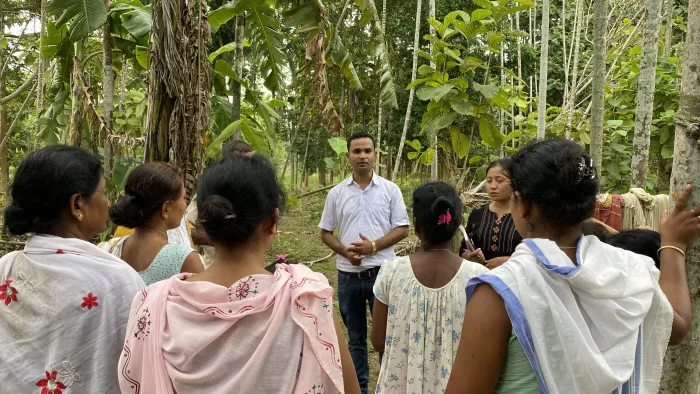
Trung tâm nhân đạo Ấn Độ
Trung tâm Nhân đạo Ấn Độ (IHH) ưu tiên hành động và lãnh đạo do địa phương lãnh đạo bằng cách tập hợp các cơ quan nhân đạo địa phương, quốc gia và quốc tế đang hoạt động ở Ấn Độ.
The India Humanitarian Hub aspires to act in ways that are beyond the scope and culture of the current humanitarian architecture, which include the engagement of more local and national humanitarian actors and exploring innovative programmes. To achieve these changes, the hub is built upon three pillars:
- Kiến thức và đổi mới
- Hành động do địa phương lãnh đạo
- New funding and financing mechanisms
2021 Tiến độ
Many networks in India are national-level networks, so the hub has spent time engaging with sub-national organisations and networks, primarily through direct relationship building and outreach to grow trust and understanding. This enabled the hub to bring together diverse stakeholders and has encouraged a decentralised approach, leading to a strong network of sub-national organisations within the hub.
The India Hub also pushed for its donors to consider funding local organisations. As a result, the hub has established strong relationships with the leads of local groups, and they have been able to share their knowledge on assessments, information, and approaches.
I am also aware of the inequity in access that exists within the sector. That can be dealt with by continuing to invest in and harness the abilities of local organisations, which Start Network is committed to.MANU GUPTA, Co-Founder, Sustainable Environment and Ecological Development Society (SEEDS). SEEDS is part of the moderating team in the India Humanitarian Hub.
Các kế hoạch trong tương lai
Over the coming year, the India Hub plans to:
- Set up an innovation hub to support locally led humanitarian innovation in India. This programme will focus on supporting innovators to adapt and learn from past attempts and pivot their innovations to better support communities affected by or at risk of crises.
- Establish a secretariat outside India’s standard “centres” of action to deepen sub-national engagement. The secretariat will then be able to engage more closely with local actors across different regions in the country.
- Support local organisations to have a greater voice, visibility, and access to funding.
THE HUB LEADERSHIP IN INDIA
Moderating Team:
Anjan Bag, Caritas Ấn Độ
Sanjay Pandey, Yuganter
Tirtha Prasad Saikia, NHU CẦU
Vijayalakshmi Arora, Dịch vụ Cứu trợ Công giáo
Sudhanshu Singh, Humanitarian Aid International
Mihir Joshi, HẠT GIỐNG
Bhanu Pratap Mall, PGVS
Joseph Sahayam, TRANG CHỦ
